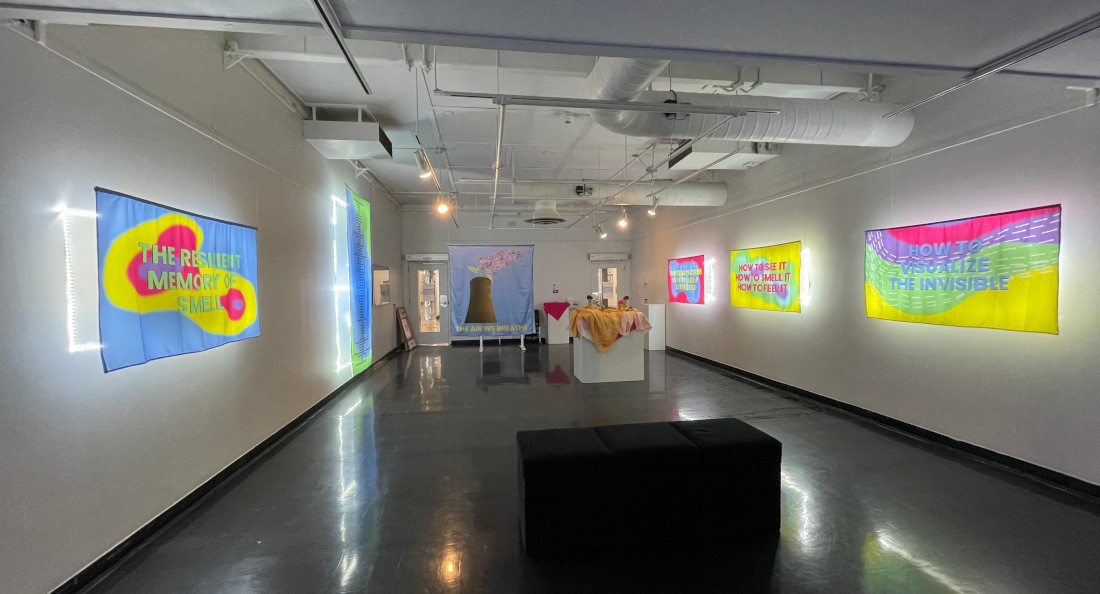Airing out climate anxiety
Gallery 1C03 exhibit highlights the sensory experience of pollution
How do you prepare for a future that’s already unfolding?
Two works by artist Christina Battle, the air we breathe and Learning the Signals/Change is Coming, are exhibited at the University of Winnipeg’s Gallery 1C03 until April 12. Both pieces are part of Battle’s ongoing series FORECAST, which “consider(s) the complex ways in which we both sense and anticipate the climate crisis.”
Participatory practice is a recurring element of Battle’s work. For Learning, visitors are prompted to take in the air around them – how it smells, feels and tastes – and log their findings on a postcard.
“One of the things at the centre of a lot of this work for me is trying to figure out strategies to make visible this crisis and this pollution that is often really invisible to us,” Battle says. “This act of practicing trying to put these sensorial feelings into language is at the heart of (the) project.”
the air we breathe is an “expanded, experimental” documentary that calls attention to environmental racism in North America and the Global South, as well as the ways corporate interests deploy wealth to reshape and suppress messages of climate justice.
“In that video, I start to thread these connections across information, disinformation and the impacts that we’ve seen, especially across the pandemic (and) within it,” Battle says. She says helping audiences connect the dots between disparate aspects of their lives is “one of the privileges of being an artist.”
The exhibition’s brochure features an essay by local artist and writer Mariana Muñoz Gomez. Their essay points to the history of Shoal Lake 40, Man. as illustrating the kinds of environmental trauma that shape racialized communities’ experience and perception of the air, water and land.
Shoal Lake 40 First Nation is an Anishinaabe community on a peninsula of Shoal Lake. Residents’ access to the mainland was cut off a century ago when the aqueduct that supplies Winnipeg with drinking water was constructed in 1919.
“We might be sharing whatever space of land, like relatively close to each other, if we think about it on a global scale,” Muñoz Gomez says. “But, of course, residents there are sensing things like environmental crisis very differently than people in the city of Winnipeg might be.”
They say the conversations Battle’s work raises about different experiences of climate anxiety and crisis can also be an entry point for potentially challenging self-reflection.
“I think a lot of people are really uncomfortable with this question of how to live ethically and responsibly on this planet,” they say. “These systems in place have made it really difficult to try to confront that question and try to just live differently than this capitalist system encourages us and expects us to.”
Battle says the widespread experience of unseasonable, unpredictable weather this past winter has destabilized how she thinks about questions of “imagin(ing) potential futures” she tries to raise in her work.
“We’re already in that future, much earlier than anyone really thought,” she says. “Time becomes something that’s so strange, because we’re already in the future, and we still haven’t quite even caught up to the present.”
FORECAST runs at Gallery 1C03 until April 12. The gallery is located in the first floor of Centennial Hall, across from Info Booth.
Published in Volume 78, Number 21 of The Uniter (March 14, 2024)







